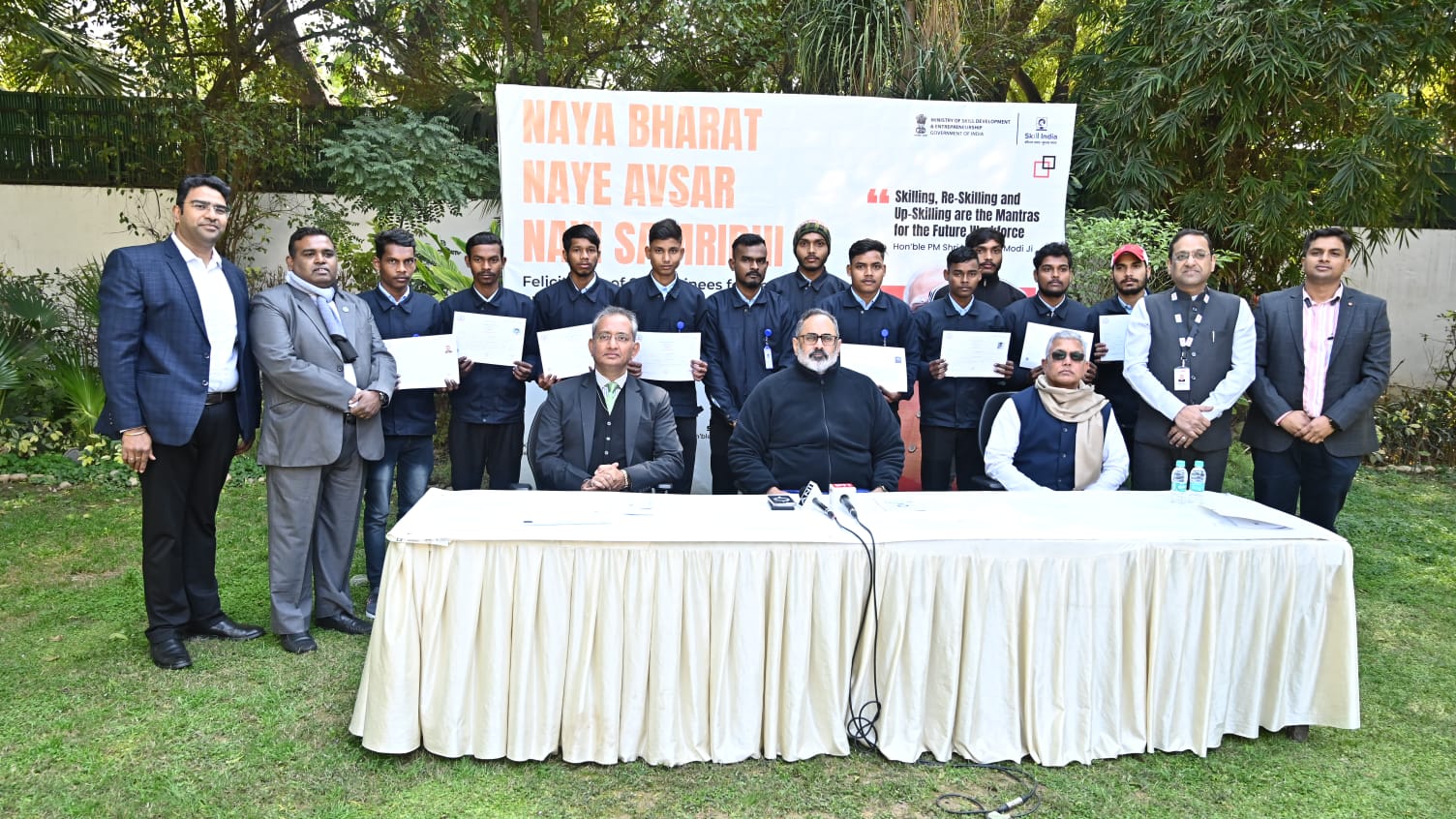Young Indians will build “Aaj Ka Bharat” and “Naya Bharat”: Shri Rajeev Chandrasekhar

New Delhi, February 8, 2024: With a vision to strengthen the growing logistics sector with skilled manpower, Shri Rajeev Chandrasekhar, Hon’ble MoS for E&IT, Skill Development & Entrepreneurship and Jal Shakti felicitated 11 candidates from the first batch of a project under the SANKALP Programme, implemented in the Medinipur district, West Bengal. Logistics Sector Skill Council (LSC), the implementation partner of the project will train 960 candidates, within a year, in job roles like Warehouse Manager, Warehouse Supervisor and Warehouse Associate with placement opportunities within the region and beyond upon the completion and the certification.
West Bengal is a key human resource hub in India, with the state being the fourth most populous and second most densely populated region in India. It has the potential to be a source for trained and quality manpower for the rest of India. Districts with significant scope for organized employment growth and low vocational training densities like West Medinipur are being targeted by private vocational training providers operating in B2C as well as B2B vocational training space.
Speaking on the occasion, Shri, Rajeev Chandrasekhar, Hon’ble MoS for E&IT, Skill Development & Entrepreneurship and Jal Shakti, said,“I would like to congratulate all the students today, this is a moment of celebration for us. It is the first time since independence that young Indians have had such unprecedented opportunities when it comes to jobs and entrepreneurship. Under the leadership of PM Narendra Modi ji, we have created a model that includes a robust partnership between public representatives, government, and the industry. It is because of such efforts over the past 10 years that we have been able to skill, reskill, and upskill young Indians to build “Aaj Ka Bharat” and “Naya Bharat.”
The Ministry of Skill Development and Entrepreneurship has been focusing on delivering enhanced outcomes for the candidates through industry partnerships post completion of skill training. Projects such as these not only provide superior skill training but also aim to deliver on placement rates of close to 70% – 75%. These placements extend both within the state and across other parts of India promoting sustainable livelihoods for the beneficiaries.





